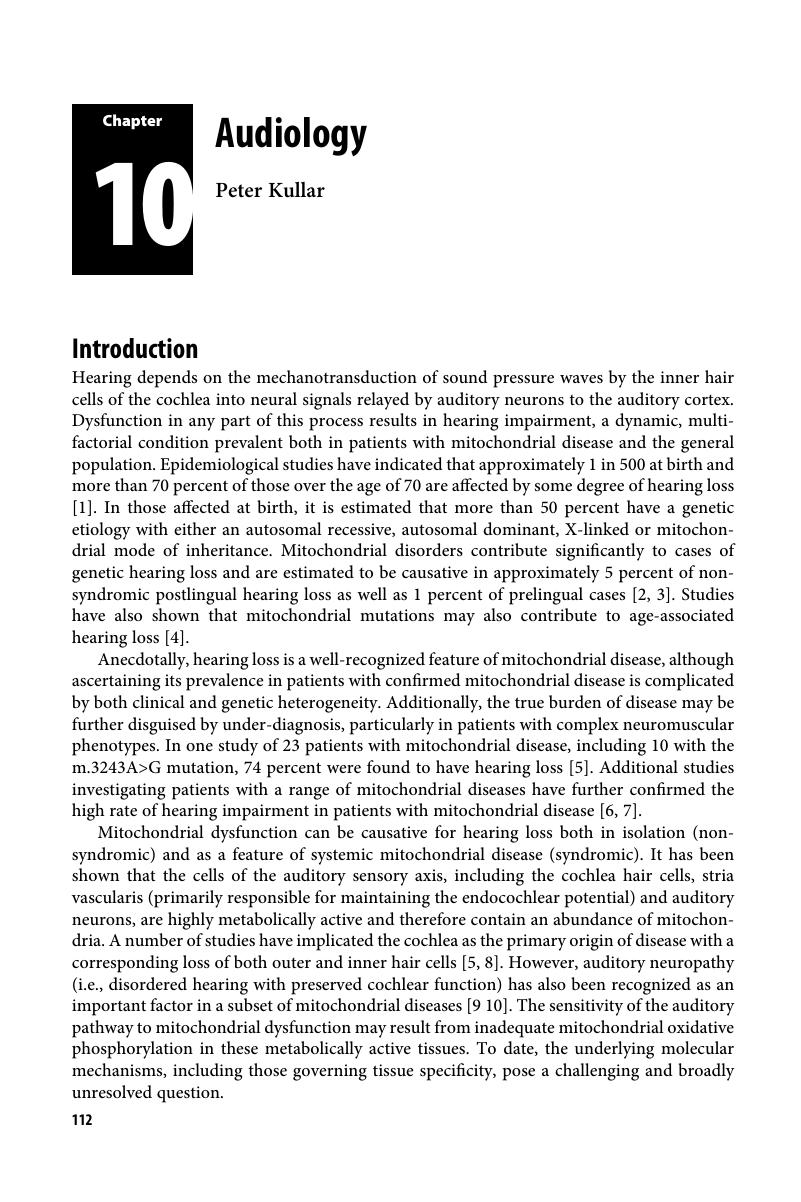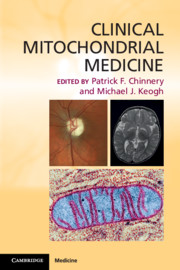Book contents
- Clinical Mitochondrial Medicine
- Clinical Mitochondrial Medicine
- Copyright page
- Contents
- Contributors
- Preface
- Abbreviations
- Section 1 Introduction to Mitochondrial Medicine
- Section 2 Systems Involved in Mitochondrial Diseases
- Chapter 7 Neurology – the Central Nervous System
- Chapter 8 Neurology – the Peripheral Nervous System – Muscle and Nerve
- Chapter 9 Ophthalmology
- Chapter 10 Audiology
- Chapter 11 Cardiovascular Medicine
- Chapter 12 Respiratory Medicine and Anesthesiology
- Chapter 13 Endocrinology and Diabetes
- Chapter 14 Gastroenterology and Hepatology
- Chapter 15 Nephrology
- Chapter 16 Psychiatry
- Index
- Plate Section (PDF Only)
- References
Chapter 10 - Audiology
from Section 2 - Systems Involved in Mitochondrial Diseases
Published online by Cambridge University Press: 28 April 2018
- Clinical Mitochondrial Medicine
- Clinical Mitochondrial Medicine
- Copyright page
- Contents
- Contributors
- Preface
- Abbreviations
- Section 1 Introduction to Mitochondrial Medicine
- Section 2 Systems Involved in Mitochondrial Diseases
- Chapter 7 Neurology – the Central Nervous System
- Chapter 8 Neurology – the Peripheral Nervous System – Muscle and Nerve
- Chapter 9 Ophthalmology
- Chapter 10 Audiology
- Chapter 11 Cardiovascular Medicine
- Chapter 12 Respiratory Medicine and Anesthesiology
- Chapter 13 Endocrinology and Diabetes
- Chapter 14 Gastroenterology and Hepatology
- Chapter 15 Nephrology
- Chapter 16 Psychiatry
- Index
- Plate Section (PDF Only)
- References
Summary

- Type
- Chapter
- Information
- Clinical Mitochondrial Medicine , pp. 112 - 122Publisher: Cambridge University PressPrint publication year: 2018



